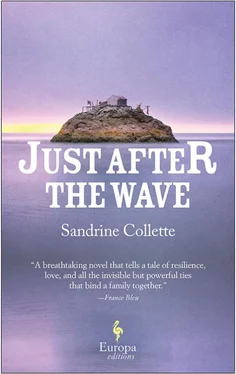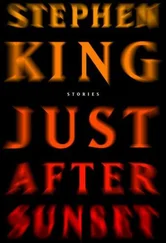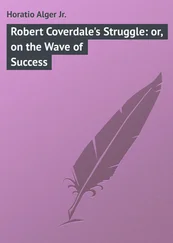And yet so frail.
Noah would like to try, too, to drive the boat, as he puts it. Louie lets him but stays right by his side. And explains: you have to keep looking at the horizon, relentlessly, stare at a spot in the distance and not let go, otherwise the boat will go around in circles.
“A spot?” says Noah, astonished. “But there’s nothing there.”
“There is, you have to find something.”
“Can I use a cloud?”
“No, clouds move.”
After only a few minutes, Louie has to adjust the course his little brother has taken. You’re going too far to the right. Noah starts to get up, abandons the tiller.
“Here, you can do it.”
“You’re stopping already?”
“I feel sick.”
He crawls over to Perrine, and Louie hears him say again, I feel sick . And then Noah leans overboard and throws up, into the ocean. Perrine reaches for a rag in one of the big bags they filled for the journey. Then Noah sits back down and closes his eyes.
“No, don’t do that,” says Perrine, shaking him; she’s the one who always gets carsick. “Look straight ahead otherwise it will start all over again.”
“I’m sick,” whines Noah.
“You’ll get used to it. Remember how when we go on vacation, I’m like that in the beginning, and then after a while it gets better.”
The boat chugs along for hours. Noah eventually fell asleep and Perrine put a sheet over his face so he wouldn’t get sunburned. She and Louie have tied kerchiefs on their heads, they can feel the heat burning their skin. Of course it would have been better if they could have hung some sort of awning over the boat, but they didn’t have time, obsessed by the thought that they had to leave the island as quickly as possible; they simply didn’t think. Now they’re sorry—even though Louie knows what a struggle it would have been to build some sort of solid shelter, fastened onto nothing, and the first gust of wind would have blown it away, so he pushes up the rag on his brow, convinced he has become some sort of pirate.
The first alarm comes after four or five hours: the motor begins to cough. Already , thinks Louie. He shouts:
“More fuel!”
Perrine hands him the fuel can. They don’t switch off the burning motor, they’re too afraid it won’t start again. And it’s absolutely vital not to spill any fuel.
“Can it catch fire?” says Noah worriedly, awake now.
“Yes,” says Louie.
“Oh no.”
They immediately continue on their way, relieved the boat is again moving forward as steadily as an old workhorse. In the can there is a little bit of gas left. Until tomorrow, thinks Louie. After that, we’ll have to row.
Shortly before nightfall he lowers the anchor. Perrine opens a bag and takes out eggs and pancakes, and potatoes to the brim, their eyes are shining. She also brought the shriveled little early apples from the apple tree at the top of the island, the one that hasn’t yielded anything decent in years; but she took them all the same, Noah went with her, carrying the ladder, she already knew what she wanted. She chops the apples in little pieces to give them to the hens with some grass she cut, hastily, she’s not sure that fowl eat grass, actually, but if they’re hungry, they’ll give it a go.
Once they’ve peeled their eggs, she takes the shells and crushes them and mixes them with the apples. She has seen Madie do this in winter when the hens didn’t have much to eat. Perrine puts half the mix aside, for the next day. She wonders if the hens will go on laying, on the boat. And whether they’ll have to leave them their fresh eggs for food.
After they’ve eaten they curl up in their blankets, their eyes closing already with exhaustion. Around them, millions of stars cast their light in reflections upon the sea, like lanterns on a holiday; there are so many that they can’t see the black water below them, stars embroidering a tapestry of tiny suns, and with their heads back they gaze at the echo above them, they play at searching on the water for the constellations they’ve found above them in the sky, which tremble and blink while they point to them, exclaiming, sorry they don’t know them better, fascinated by the glow, the sparkle. When Noah leans over to splash the water with both hands, the world clouds and furrows, the stars blur. It takes a long time for the sea to recover its smooth surface, for the ripples to vanish—no matter, they look at the sky again, motionless despite the trails of satellites. Perrine recognized the Little Dipper and, slightly higher up, the North Star. They fall asleep too soon, fatigue gets the better of them. And if they wake during the night, when the clucking of a dreaming hen disturbs them, they are instantly reassured, lulled by the lights of a world watching over them.
* * *
The next day the difficulties start. Since dawn, when the raw light on the ocean woke them and they started the motor, Louie has been watching the fuel level. For a start he lowered the throttle so it would last longer; at around noon he poured the final drops of fuel into the tank. Now, after spluttering and hiccupping for a few minutes, the motor stalls, stops, no more sound, nothing.
“That’s it,” says Louie.
“No more gas?” asks Noah.
“Nah.”
“Are we almost there?”
Louie looks around him. No way of knowing. He would give anything to see, far far off on the horizon, something that looks like land, but no, and his throat constricts like the night before, the same irrational temptation to turn around and go back to their island, the one that will be submerged in a few days’ time, it’s stupid, really stupid, he murmurs to himself. How much time have they saved with the motorboat, he has no way of knowing; how long they will have to keep rowing across this monstrous ocean, he doesn’t know either. So to forestall any false sense of joy, he says:
“I don’t think so.”
Noah grumbles.
“There’s nothing but water. It’s stupid.”
“We have to get going, now,” says Louie, handing him one of the two oars.
“I don’t know how,” whines Noah.
“Try.”
They paddle unevenly; Noah cannot get into the rhythm, hasn’t the strength, he lets the boat turn when Louie sculls on his side, at the age of eight you don’t have much in the way of muscles, especially when you’re just a little shrimp.
“You have to make an effort,” complains Louie, “I can’t row by myself for days on end. But hand it over, I’ll make a start. When I get tired, you’ll help me.”
He takes both oars and puts them in the oarlocks, settles onto the seat, and, like Pata, cries out with his first pull, Heave! He doesn’t like sitting like this, which means his back is to the horizon, which prevents him from seeing where he’s going, unless he twists around every two minutes, craning his neck to make sure they’re not wandering off course—but what is their course, when the horizon is slack, undetectable, so monotonous you could weep.
Heave , says Louie in his mind, to give himself courage.
Because where courage is concerned, he hasn’t got a lot left.
For a long time, the water dripping from the oars between two strokes is the only sound drifting over the sea, slow and regular. Louie’s arms are aching, and so is his back; the sweat is stinging his eyelids as it trickles down his brow. He doesn’t speak. He doesn’t know whether Perrine and Noah have noticed that he is slowing down. He doesn’t want Noah to help him yet, the boy is dozing under a cloth for protection from the sun, he can do another hour, anyway, and then the heat will start to decline, and his thoughts decompose, extenuated, there is nothing but water, oars, and the sound of his breathing.
Читать дальше












